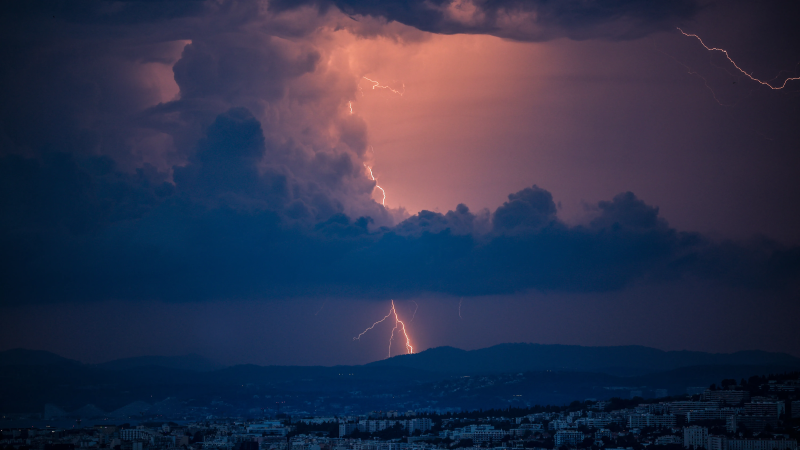Michigan woman died after hiking Isle Royale National Park, officials say
A Michigan woman died of unknown medical complications while backpacking at a remote national park in Lake Superior on Monday, officials said.
The woman, identified as a 37-year-old from Battle Creek, Michigan, was hiking near Lake LeSage at Isle Royale National Park with her partner when "she experienced sudden onset medical complications," the National Park Service said in a news release Wednesday. Her condition deteriorated and she eventually was unable to walk, according to park officials.
The woman then lost consciousness and stopped breathing, officials said. CPR was provided but "attempts to resuscitate her were unsuccessful."
Other backpackers in the area contacted Michigan State Police through a delayed 911 text message and that information was relayed to a National Park Service dispatch center, officials said. EMTs located and stayed with the party Monday evening.
According to officials, a crew with the Isle Royale National Park staff then responded early Tuesday and transported the group from a remote location. As of Thursday, an investigation into the incident remains ongoing.
"The Isle Royale community extends their sincere condolences to the family and friends of the deceased," the National Park Service said.
Isle Royale National Park known for remoteness
Isle Royale National Park is one of the most remote national parks in the United States, according to the Rock Harbor Lodge and Marina. The park was established in 1940 and over 99% of land in Isle Royale is designated wilderness.
The park is located in Lake Superior's northwest corner and is nearly in Canadian and Minnesota waters. It consists of over 400 islands and the park's main island, Isle Royale, is about 50 miles long, according to the National Park Service.
As an archipelago, or group of islands, Isle Royal is only accessible by crossing Lake Superior via a ferry, seaplane, or private water crafts, the National Park Service said. Travel times can range from 35 to 45 minutes via a seaplane service and from 1.5 to seven hours on ferries.
No vehicles are allowed on the island and the National Park Service warns visitors that cell phone service is unreliable for emergencies. The park also advises visitors to rely on their skills and equipment for emergencies, as park rangers can be difficult to reach, and emergency responses and evacuation can take time.
Relatively few travelers journey to the park, which has only received more than 1.2 million visitors since 1940, according to National Park Service statistics.

National Park deaths
The woman's death is the latest to occur at a national park in the United States. A recent analysis from the law firm Panish Shea Ravipudi LLP found that while national parks are still safe overall, thousands of people have died at parks since 2007.
From 2007 to 2024, there were more than 4,200 deaths at national parks, according to the analysis. National Park Service data showed that there was an average of 358 deaths a year reported at national parks from 2014 to 2019.
Across the over 420 national parks, 177 reported one or more deaths during that period, the National Park Service said. Half of all the reported deaths were due to unintentional causes, including motor vehicle crashes, drownings, and falls.
Half of the medical deaths occurred while the individual was engaged in physical activity, such as hiking, biking, and swimming, according to the National Park Service.
Numerous incidents at national parks have made national headlines in recent years, including two deaths this summer from heat exposure symptoms after hiking at California's Death Valley National Park.
A string of accidents have also occurred in Grand Canyon National Park. Last week, officials recovered the body of a missing 20-year-old woman after a dayslong search. The discovery marked the third reported death in the national park in one week, USA TODAY previously reported.
In July, a 20-year-old hiker out fell to her death from Half Dome in California's Yosemite National Park during a storm.
Contributing: Eve Chen, USA TODAY; Darcie Moran, Detroit Free Press
Disclaimer: The copyright of this article belongs to the original author. Reposting this article is solely for the purpose of information dissemination and does not constitute any investment advice. If there is any infringement, please contact us immediately. We will make corrections or deletions as necessary. Thank you.





